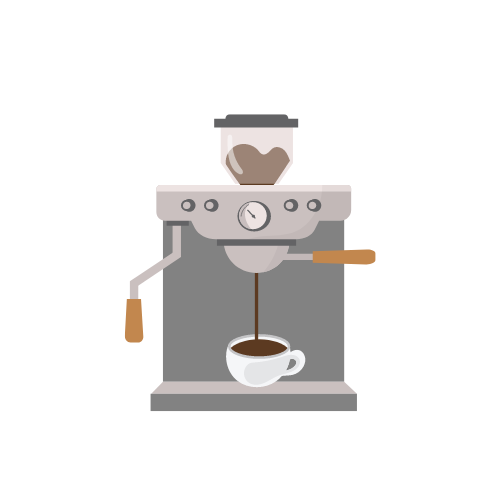Coffee is an integral part of many people’s daily routine, but it can also come with a hefty environmental cost. From disposable pods to energy consumption, traditional coffee makers can leave a significant carbon footprint.
However, choosing an eco-friendly coffee maker allows you to enjoy your coffee while minimizing your impact on the planet.
Here’s a guide to help you select the perfect sustainable coffee maker.
1. Understand What Makes a Coffee Maker Eco-Friendly
Before diving into the options, it’s essential to know what features make a coffee maker sustainable:
- Energy Efficiency: Look for models with energy-saving features like automatic shut-off and low power consumption.
- Durable Materials: Choose machines made from high-quality, long-lasting materials to reduce waste from frequent replacements.
- Minimal Waste: Opt for coffee makers that don’t rely on single-use pods or that are compatible with reusable filters.
- Recyclability: Consider whether the machine’s components are recyclable at the end of their life cycle.
2. Opt for Manual Brewing Methods
Manual coffee makers are inherently more eco-friendly because they don’t require electricity. Options include:
- French Press: No filters or pods are needed, and it’s made with durable materials like glass or stainless steel.
- Pour-Over Coffee Makers: These use minimal components and often biodegradable paper filters.
- AeroPress: Compact and portable, it uses minimal materials for brewing and works without electricity.
These methods also allow for precise control over your brewing process, resulting in a perfect cup of coffee.
3. Choose Energy-Efficient Machines
If you prefer an electric coffee maker, energy efficiency should be a priority. Look for:
- Automatic Shut-Off Features: Saves energy by turning off the machine when not in use.
- Low Energy Consumption: Many modern coffee makers are designed to consume less power while maintaining performance.
- Eco-Modes: Some machines offer modes that optimize energy use during brewing.
4. Avoid Single-Use Coffee Pods
While convenient, single-use coffee pods contribute significantly to plastic waste. Instead, consider:
- Coffee makers compatible with reusable pods or filters.
- Brands offering biodegradable or compostable pods.
Switching to loose coffee grounds or beans also reduces packaging waste.
5. Check the Materials
The materials used in a coffee maker can significantly impact its sustainability:
- BPA-Free Plastics: Ensure any plastic components are free from harmful chemicals.
- Stainless Steel: Durable and recyclable, it’s a great choice for eco-friendly machines.
- Glass: Non-toxic and recyclable, often used in pour-over and French press coffee makers.
6. Consider the Longevity and Repairability
Investing in a coffee maker that lasts for years is far more sustainable than replacing a cheaper model frequently. Look for brands that:
- Use high-quality, durable materials.
- Offer spare parts for repairs.
- Provide warranties that indicate long-term reliability.
7. Support Brands with Sustainable Practices
Some coffee maker brands go beyond the product itself by adopting eco-friendly manufacturing practices or supporting sustainability initiatives. Examples include:
- Brands that use recycled materials in their products.
- Companies that offset their carbon footprint.
- Manufacturers that fund environmental projects or give back to communities.
8. Look for Certifications
Certifications can help you identify coffee makers that meet environmental standards:
- Energy Star Certification: Indicates energy-efficient appliances.
- B Corp Certification: Shows the company adheres to high social and environmental standards.
9. Reduce Waste with Reusable Accessories
Eco-friendly brewing isn’t just about the coffee maker; it also involves using sustainable accessories. Consider:
- Reusable Coffee Filters: Eliminate the need for disposable filters.
- Compostable Filters: If you prefer paper filters, choose biodegradable options.
- Reusable Pods: Compatible with many modern coffee makers, these are a great alternative to single-use pods.
Conclusion
Choosing an eco-friendly coffee maker doesn’t just benefit the environment—it can also elevate your coffee experience.
By focusing on energy efficiency, sustainable materials, and waste reduction, you can enjoy every cup knowing you’ve made a positive impact.
Whether you prefer manual brewing or high-tech machines, there’s an eco-friendly coffee maker for every lifestyle.
Start your journey toward sustainable coffee brewing today and make every cup count—for you and the planet.
Let me know if you’d like to tweak this article or add more details!


Leave a Reply